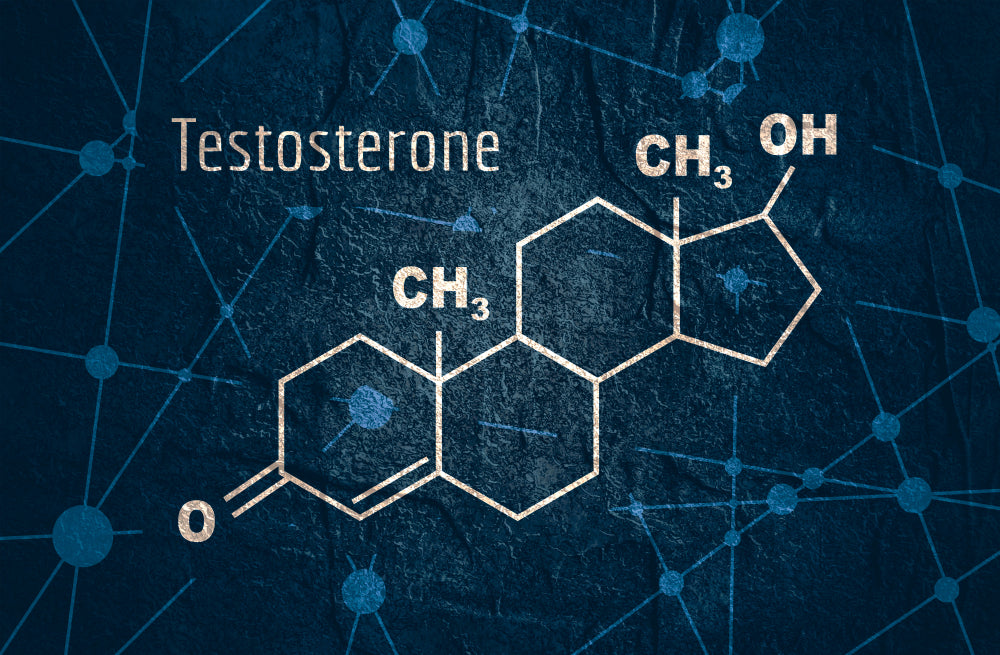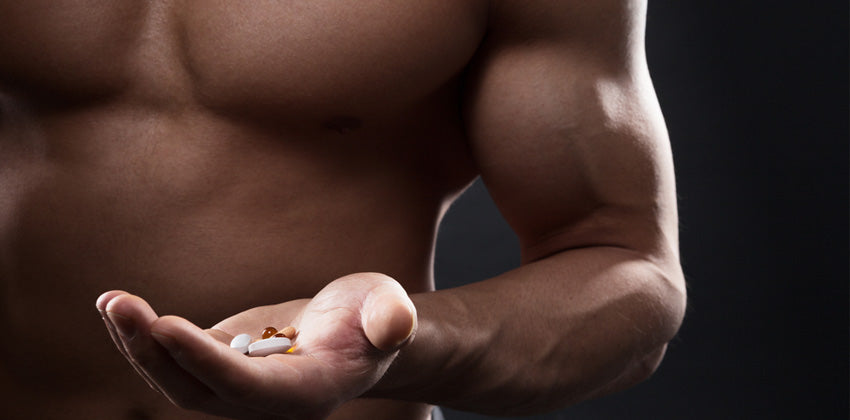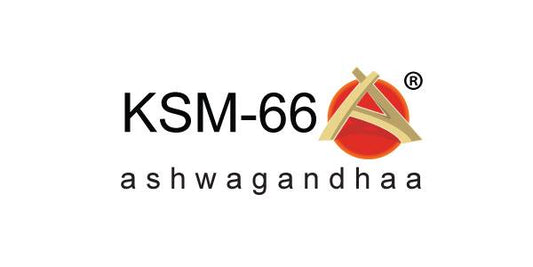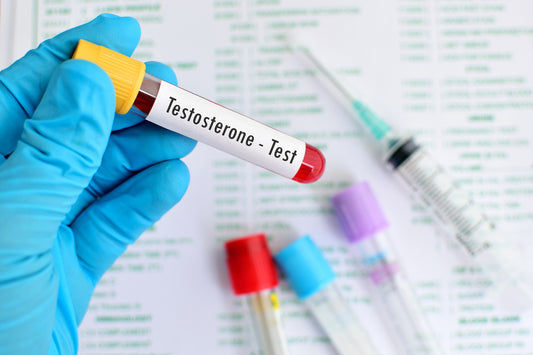There are plenty of reasons why a testosterone booster supplement might not work:
- Weak Ingredient Quality
- Ineffective Dosages
- Poor Formulation Strategy
And the most obvious reason: some testosterone boosters just flat out don’t work.
Not all testosterone boosters, but some.
Fortunately, in this article, we’re primarily focusing on the testosterone boosters that do work.
You'll also find out why taking an effective, safe natural testosterone boosting supplement like Testo Lab Pro may be totally worth it for you.
Key Point:
If you feel you’re on the downward-facing side of age-related testosterone decline, the benefits of taking natural testosterone boosters can be life-changing.
Conversely, taking ineffective T-boosters can be equally discouraging and a waste of time—not to mention money.
Continue reading to learn about:
- The benefits of having optimal testosterone levels, including the best testosterone boosters that work for the job.
- As well as a few common T-booster ingredients that you should avoid. (And that you’ve likely heard of!)
Benefits of Having Optimal Testosterone Levels
As we age beyond a certain point between our late-20’s and early-30’s, our testosterone levels naturally decline.
This phenomenon is known (and begrudged) as age-related testosterone decline; an event attributed to the age-related decrease in testicular and hypothalamic-pituitary function.
With that in mind, many of us are well aware of the downsides to having suboptimal testosterone levels: decreased energy and vigor, impaired sex drive and libido, reproductive issues, less-than-stellar muscle performance, and so on.
Arguably, “suboptimal testosterone levels” aren’t exactly “suboptimal” if this is a natural, universal consequence of aging.
However, there are also plenty of “unnatural” environmental factors involved in declining T status - from our ultraprocessed diets to the pollutants in the air - which is why natural testosterone boosting supplements are now so advantageous to sustaining a healthy, active, masculine adulthood.
By elevating your testosterone levels to an optimal range, an effective natural T-booster supplement can help improve your:
Anabolic Muscle Metabolism
Though primarily viewed as a “sex” hormone (meaning that it strongly regulates sexual and reproductive health) testosterone is also prized as an anabolic hormone due to its direct effect on muscle protein synthesis.
To build muscle, the body needs to first synthesize protein.
This is where testosterone comes into play: by increasing muscle protein synthesis, testosterone promotes muscle mass increases.
Trying to build muscle in the absence of healthy testosterone levels is a losing game. However, elevating your testosterone with a natural T-booster may significantly improve your exercise-related muscle and strength gains.
Sex Drive and Libido
Similar to testosterone’s relationship to anabolic muscle growth, the relationship between testosterone and libido is very strong.
This perhaps explains the stereotype of sexually aggressive men having excessively high testosterone count (which doesn’t sound much like a stereotype but rather a likely observation).
Research agrees that testosterone and libido are closely linked, with one community-based study observing that “libido and T concentrations are strongly related at the population level.”
Improving one’s T status may potentially restore an elevated sex drive and libido.
Sperm Quality
Anabolic muscle growth, sex drive, libido—these are, for the most part, concerns of vanity among men. Appearing strong and vigorous and virile is certainly important for men.
However, more underlying masculine factors, such as sperm quality, are also centrally important to a man’s masculine identity.
And, yes, testosterone is involved in the regulation of sperm quality as well.
Under conditions of low total testosterone count, sperm quality tends to suffer, with notable increases in abnormal sperm morphology and decreases in live birth rates.
Conversely, optimal testosterone levels tend to correlate with healthy sperm quality, sperm count, sperm morphology, and so on, resulting in all-around better male reproductive health.
Cognitive and Emotional Balance
Parallel to age-related testosterone decline is age-related cognitive decline, likely due to overlapping systems involved male sex hormones and cognitive function.
Whether there is more than an age-related relationship between testosterone and cognitive function is somewhat unclear. Yet, research does suggest that low levels of testosterone may be related to reduced cognitive and emotional ability, regardless of age.
Either way, whether grounded in neurochemistry or purely a psychological phenomenon (i.e., a self-esteem issue), improving your testosterone status may likely improve cognitive and emotional balance.
What are Testosterone Booster Supplements Designed to Do?

Testosterone booster supplements are designed to …well, boost testosterone!
Except this also describes the essential function of anabolic steroids. And one of the key points of natural testosterone boosters is to optimize male hormone levels without risking the usual side effects associated with anabolic steroids.
With anabolic steroids, the goal is to elevate testosterone activity to an unnatural degree, resulting in a drastic, unnatural rise of muscle mass, strength, and performance—potentially at the cost of your long-term health and performance.
Testosterone boosters, on the other hand, aren’t necessarily designed to flat-out increase your testosterone levels but rather seek to optimize your male hormone activity to a natural, healthy threshold.
This may mean elevating your total and free T counts from suboptimal to optimal levels. But an effective testosterone booster isn’t seeking to go beyond those optimal, healthy levels the way that anabolic steroids do.
It’s all about balance and restoration here.
Don’t Set Unrealistic Expectations with Natural T-Boosters
Because natural T-boosters restore testosterone to a healthy hormonal balance, as opposed to outright elevating testosterone irrespective of “health” or “balance,” it’s important not to set unrealistic expectations with natural T-boosters.
Natural T-boosters are not anabolic steroids, much in the way that natural nootropics are not prescription-grade stimulants.
This isn’t to say that you should substitute “unrealistic expectations” with the expectation of disappointment. Natural T-boosters work. And there’s no denying that going from suboptimal to optimal T levels feels really good.
But the idea is to elevate your T levels to an optimal range, allowing you to enjoy a healthier, more active lifestyle. Not to turn into the Incredible Hulk overnight.
Besides, the Incredible Hulk isn’t exactly a paragon of a happy lifestyle, is he?
Related Post: Best Nighttime Supplement for Muscle Growth
Are there any side effect risks with T-Boosters?
Compared to anabolic steroids, natural T-boosters are much more safe and viable for long-term male health and performance enhancement. However, this doesn’t mean that there aren’t any risks involved in supplementing T-boosters, especially poorly formulated T-booster supplements.
Excessive dosages, inferior quality, poor ingredient choices—any supplement that commits one of these wrongs tends to commit all three. And when you take an excessively dosed, inferior quality, poorly formulated T-booster supplement, your risk of side effects only increases.
With that in mind, some of the more common side effect risks associated with shoddy T-booster stacks include:
Irritability and Mood Swings
Under conditions of low testosterone, irritability heightens. Likewise, under conditions of excess testosterone, irritability heightens.
Typically, when we discuss the relationship of mood imbalance and testosterone imbalance, we’re either talking about “irritable male syndrome,” a spike in irritability attendant upon age-related testosterone decline, or about the stereotype of the hyper-aggressive ‘roided-up beefcake. Either way, testosterone imbalance, whether high or low, seems to negatively impact cognitive and emotional state—and so irritability and mood swings may occur as a side effect of influencing your testosterone levels.
Acne Flare-Ups
The most potent androgen, even more potent than testosterone, is DHT (dihydrotestosterone), which is formed in the sebaceous glands by 5-alpha reductase, an enzyme responsible for converting T into DHT.
Similar to the side effect of gynecomastia (see next section), acne flare-ups may result as a consequence of elevated testosterone, not necessarily due to the effects of testosterone itself but rather to the effects of DHT levels increased by elevated T levels. Under such conditions, a DHT blocker might be warranted, but this is something to consult with your physician about.
After all, if the point of testosterone boosting is to elevate your androgen hormones to a manly threshold, you want to be cautious with limiting the manliest androgen in town: DHT.
Gynecomastia (Breast Enlargement)
Gynecomastia, otherwise known as “man boobs,” is a much-feared side effect of any testosterone-boosting regimen, due to the well-known effects of increased testosterone on breast tissue.
Granted, it’s not actually the testosterone itself driving the breast enlargement. This is in large part thanks to aromatase, the enzyme responsible for converting testosterone to estrogen. Under conditions of heightened testosterone, aromatase has a potentially larger supply of T-precursor to synthesize estrogen, which then contributes to the man-boob effect of testosterone boosting.
This is why pairing testosterone boosters with an estrogen blocker is key to sustaining optimal T levels without any unwanted gynecomastia. (Not to say that gynecomastia is ever “wanted,” but you get it.)
Over-the-Counter Testosterone Boosters: Are They Worth It?
With the benefits and potential side effects in mind, the question remains: are testosterone boosters worth it?
For the most part, yes—however, this greatly depends upon age.
Men in their teens and early 20’s are generally not benefited by taking a natural testosterone booster, considering that they’re already operating at peak T power.
As we age beyond our late-20’s and early-30’s, however, testosterone levels decline, which makes natural testosterone boosters not only worth it but increasingly worth it as time continues onward.
Optimizing your testosterone levels to peak performance can be a significant game-changer—not to mention life-changer—as the T-related rise in daily vitality and energy comes with a cascade of various other lifestyle and behavioral advantages.
In fact, many of us become so used to the “low energy” consequences of low testosterone level that we don’t even realize that we could be feeling much, much better.
Yet, many who do have this realization are often tempted by more powerful performance enhancers, such as anabolic steroids, which only further hurt you in the long run.
This is why natural testosterone booster supplements are your best bet for feeling your best and being your best self once you hit a certain age where age-related testosterone decline becomes apparent.
Testosterone Boosting Ingredients That Work

Not all T-boosters work. And of those that do, few come with minimal risk of side effects.
Below, we’ll cover some of the most popular T-boosters that don’t work and that you should avoid. However, here we’ll get into some of the best testosterone boosting ingredients that do work.
But it’s important to note: these T-boosters work best together, as opposed to alone.
With that in mind, the best natural testosterone boosting supplement supplies the following in an all-in-one T-boosting formula:
D-Aspartic Acid
A pro-testosterone amino acid that regulates sex hormones throughout the endocrine system. D-aspartic acid (DAA) is one of the most popular and effective natural T-boosters.
DAA supports testosterone by acting directly within the hypothalamus-pituitary-gonadal (HPG) axis, a hormonal network linking the brain and the testes.
DAA seems to work by triggering a chain of events within the HPG axis:
- DAA stimulates the secretion of gonadotropin-releasing hormone (GnRH) in the hypothalamus;
- GnRH triggers the production and release of luteinizing hormone (LH) and follicle-stimulating hormone (FSH) in the pituitary gland;
- LH and FSH promote testosterone synthesis and sperm production, respectively, in the Leydig cells of the testes.
In addition to promoting male sex hormones, DAA also seems to benefit growth hormone (GH) activity, potentially doubling as an anabolic ergogenic for bodybuilders and athletes.
However, because DAA’s bioactivities are so potent and powerful, it’s smart to pair this T-booster ingredient with an estrogen blocker, such as luteolin (see below).
Ashwagandha
Prized as a legendary Ayurvedic herb, ashwagandha is today known as an “adaptogen,” which refers to a class of herbs and compounds that may help the brain and body adjust, or adapt, to stress.
It’s well-known that stress can be a T-killer, not to mention a killer of many other aspects of health and fitness. However, ashwagandha’s T-boosting benefits seem to have more to do with this herb’s antioxidant status.
By providing antioxidant protection to the testes, decreasing the oxidative stress impact on T-producing cells, while also optimizing LH and FSH balance, ashwagandha seems to encourage an all-around healthier male reproductive system.
Altogether, the benefits you can expect with ashwagandha supplementation include heightened muscular strength and stamina, sex drive and libido, sperm quality, and virility.
Not to mention ashwagandha’s sedative-like effects for feel-good cognitive relaxation.
Mucuna Pruriens
One of the more unique T-boosters.
Mucuna pruriens, also known as “velvet bean,” supplies a uniquely potent concentration of L-DOPA (levodopa), a dopaminergic amino acid that seems to boost testosterone via the HPG axis—similarly to DAA.
This means that L-DOPA encourages testosterone production by stimulating the secretion of GnRH, thus indirectly promoting LH and FSH secretion.
Mucuna pruriens’ across-the-board benefits on male hormonal health and fitness manifest in several ways from improving stress management to enhancing sperm quality and anabolic muscle growth.
Also, L-DOPA’s dopaminergic status also may have significant cognitive and mood advantages, somewhat doubling this T-booster as a nootropic.
Luteolin
Found in many fruits and vegetables, luteolin is a yellow, crystalline, polyphenolic flavonoid with many health benefits ranging from antioxidant to anti-inflammatory to neuroprotective.
Within the context of testosterone boosting, luteolin is favored as a natural estrogen blocker, thanks to this compound’s inhibitory effects on aromatase, the enzyme responsible for converting testosterone to estrogen.
- By reducing aromatase activity, luteolin can help sustain elevated testosterone activity without any reciprocal rises in estrogen, prolactin, or other unwanted hormonal activity.
When combining powerful natural T-boosters, such as DAA and Mucuna pruriens, supplementing an aromatase inhibitor like luteolin is key to sustaining your anabolic, androgenic gains.
There’s no need to grow a pair of man-boobs while recovering your masculine energy.
Testosterone Essentials: Vitamins + Minerals
Some herbal extracts and compounds offer substantial, unique T-boosting benefits that you can’t find elsewhere.
However, what’s also important to consider in any T-boosting regimen is the importance of T-friendly vitamins and minerals, which establish the micronutrient foundation upon which T-boosting is even possible.
Here are some of the “testosterone essential” micronutrients you should be considering, if you’re looking to optimize your testosterone status:
- Zinc – a raw T precursor required for T synthesis; no zinc, no T.
- Magnesium – protects T against sex hormone-binding globulin (SHBG), a protein that binds and deactivates free testosterone.
- Vitamin D – the “sunny” vitamin, vitamin D strongly correlates with testosterone status via an unknown mechanism.
- Boron – a regulatory mineral, boron helps optimize total sex hormone status by combating SHBG and estrogen while supporting DHT, magnesium, and vitamin D.
- Vitamin K – deficient levels of vitamin K translate to deficient testosterone levels, making vitamins K1 + K2 also essential to healthy T activity.
Many other micronutrients may potentially influence T status via other indirect metabolic pathways. However, these are the main micronutrients to look out for while testosterone boosting.
Adding these to your diet may significantly improve your internal testosterone raising environment, resulting in a sturdier nutrient foundation upon which to further optimize your sex hormone bio-pathways.
T-Boosting Ingredients That Don’t Work…
In addition to knowing which testosterone boosting ingredients actually work, it’s also beneficial knowing which either don’t work or should be avoided due to safety concerns.
Some of the more common (with the first listed item here being the most common) Testosterone booster ingredients that you should avoid include:
- Tribulus Terrestris – the most popular herbal T-booster, Tribulus terrestris is worth highlighting first due to the rampant misinformation surrounding this botanical. While, yes, Tribulus does seem to assist with sexual health and vigor, the herb doesn’t seem to do much for the average male’s T status. It’s a decent man enhancer, but not a genuine T-booster.
- DHEA (dehydroepiandrosterone) – because its naturally used in the body to synthesize testosterone, DHEA is somewhat of a “real deal” trendy T-booster for many supplement manufacturers, despite the low oral bioavailability of oral DHEA supplements. Not to mention it’s a WADA banned substance.
- Bulbine Natalensis – traditionally used in Africa to enhance sex drive and libido, Bulbine natalensis works to enhance anabolic gains and T-boosting bio-pathways; however, the herb seems to work at the cost of liver health and function.
- Licorice Extract – not all licorice extracts should be avoided; however, glycyrrhetic acids, which give licorice its unique flavor, seem to reliably stimulate cortisol, a T-diminishing stress hormone associated with catabolic muscle loss.
- Deer Antler Velvet – despite its status as a WADA banned substance, due to its illicit supply of IGF-1 (an anabolic hormone for muscle growth), deer antler velvet doesn’t seem to actually work for improving male sex hormone levels.
Another hugely popular T-booster that does work but should be approached cautiously: fenugreek.
Not to say that fenugreek is a particularly unsafe T-booster, but it works potentially at the cost of another important male sex hormone: DHT (dihydrotestosterone).
Essentially, fenugreek blocks the action of 5-alpha-reductase, an enzyme responsible for converting testosterone to DHT.
This, of course, benefits testosterone, and if you’re experiencing prostate issues, it could help as a DHT-blocker in that regard. But even so, DHT is still an important hormone for male health and sexual fitness.
If you feel you’re in need of a DHT blocker, visit a physician. Otherwise, it’s best to avoid DHT-blockers as a T-boosting strategy, as the benefits for testosterone are offset by the reduction in masculine DHT levels.
Conclusion
Taking one of the listed natural T-boosters may help elevate certain aspects of your male hormone status within an optimal range.
However, to boost all aspects of your male sex hormone status, you’ll need to stack all the best T-boosters in a clean, safe, effective formula.
Here's where Testo Lab Pro comes in...
Supplying all the best testosterone boosters that work in a totally all-natural, clean, green formula.
Using the patented, plant-based NutriCaps®, a prebiotic-infused capsule constructed out of fermented tapioca (pullulan).
Testo Lab Pro is able to avoid all the usual synthetic additives found in other T-booster supplements that impair their formulas’ quality and potency.
All-natural, vegan-friendly, eco-friendly—Testo Lab Pro is the best natural T-booster for safe, legal support of healthy male testosterone production, especially in conjunction with strength training.
With clinically effective doses and zero synthetics, Testo Lab Pro is safe for daily, long-term use—no cycling required.

References
- Golan R et al. Age-Related Testosterone Decline is due to Waning of Both Testicular and Hypothalamic-Pituitary Function. Aging Male. 2015; 18(3): 201-204.
- Griggs RC et al. Effect of testosterone on muscle mass and muscle protein synthesis. J Appl Physiol (1985). 1989 Jan; 66(1): 498-503.
- Travison TG et al. The relationship between libido and testosterone levels in aging men. J Clin Endocrinol Metab. 2006 Jul; 91(7): 2509-13.
- Trussell JC et al. Association between testosterone, semen parameters, and live birth in men with unexplained infertility in an intrauterine insemination population. Fertil Steril. 2019 Jun; 111(6): 1129-1134.
- Beauchet O. Testosterone and cognitive function: current clinical evidence of a relationship. Eur J Endocrinol. 2006 Dec; 155(6): 773-81.
- Lincoln GA. The irritable male syndrome. Reprod Fertil Dev. 2001; 13(7-8): 567-76.
- Förström L. The influence of sex hormones on acne. Acta Derm Venereol Suppl (Stockh). 1980; Suppl 89: 27-31.
- Robeva R et al. Causes and Metabolic Consequences of Gynecomastia in Adults Patients. Int J Endocrinol. 2019; 2019: 6718761.
- D’Aniello A et al. Occurrence of D-aspartic acid and N-methyl-D-aspartic acid in rat neuroendocrine tissues and their role in the modulation of luteinizing hormone and growth hormone release. FASEB J. 2000 Apr; 14(5): 699-714.
- Topo E et al. The role and molecular mechanism of D-aspartic acid in the release and synthesis of LH and testosterone in humans and rats. Reprod Biol Endocrinol. 2009; 7: 120.
- Shukla KK et al. Withania somnifera improves semen quality by combating oxidative stress and cell death and improving essential metal concentrations. Reprod Biomed Online. 2011 May; 22(5): 421-7.
- Shukla KK et al. Mucuna pruriens improves male fertility by its action on the hypothalamus-pituitary-gonadal axis. Fertil Steril. 2009 Dec; 92(6): 1934-40.
- Shukla KK et al. Mucuna pruriens Reduces Stress and Improves the Quality of Semen in Infertile Men. Evid Based Complement Alternat Med. 2010 Mar; 7(1): 137-144.
- Alleman RJ et al. A Blend of Chlorophytum Borivilianum and Velvet Bean Increases Serum Growth Hormone in Exercise-Trained Men. Nutr Metab Insights. 2011; 4: 55-63.
- Lu DF et al. Inhibitory effect of luteolin on estrogen biosynthesis in human ovarian granulosa cells by suppression of aromatase (CYP19). J Agric Food Chem. 2012 Aug 29; 60(34): 8411-8.
- Balunas MJ et al. Natural Products as Aromatase Inhibitors. Anticancer Agents Med Chem. 2008 Aug; 8(6): 646-682.
- Fallah A et al. Zinc is an Essential Element for Male Fertility: A Review of Zn Roles in Men’s Health, Germination, Sperm Quality, and Fertilization. J Reprod Infertil. 2018 Apr-Jun; 19(2): 69-81.
- Maggio M et al. The Interplay between Magnesium and Testosterone in Modulating Physical Function in Men. Int J Endocrinol. 2014; 2014: 525249.
- Pilz S et al. Effect of vitamin D supplementation on testosterone levels in men. Horm Metab Res. 2011 Mar; 43(3): 223-5.
- Naghii MR et al. Comparative effects of daily and weekly boron supplementation on plasma steroid hormones and proinflammatory cytokines. J Trace Elem Med Biol. 2011 Jan; 25(1): 54-8.
- Takumi N et al. Dietary vitamin K alleviates the reduction in testosterone production induced by lipopolysaccharide administration in rat testis. Food Funct. 2011 Jul; 2(7): 406-11.















